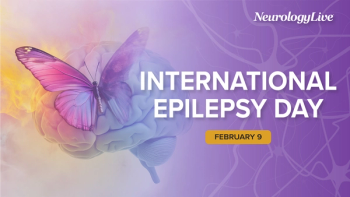
Nabiximols Oromucosal Spray Fails in Phase 3 Trial in Multiple Sclerosis Spasticity
Despite not reaching the primary end point, the oromucosal spray is still being evaluated in 2 ongoing trials that comprise of 446 and 190 patients, respectively, with spasticity due to multiple sclerosis.
Newly announced data from the RELEASE MSS1 trial (NCT04657666) showed that JZP378, Jazz Pharmaceuticals’ nabiximols oromucosal spray formulation, did not meet its primary end point of change in Lower Limb Muscle Tone-6 (LLMT-6) among patients with multiple sclerosis (MS) experiencing spasticity.1
Despite the failed results,
Nabiximols oromucosal spray is a botanical mixture that contains ∆9-tetrhydrocannabidiol (THC) and cannabidiol (CBD), as well as other cannabinoid and noncannabinoid components. Although the medication did not reach the study’s primary end points, the safety profile remained consistent with previously reported adverse events, with no new safety signals observed.
The study enrolled 68 adults with MS who were randomized 1:1 to either nabiximols oromucosal spray or placebo and evaluated on the primary outcome of LLMT-6 change from baseline to day 21, or one study period, as measured by the Modified Ashworth Scale. In the first period of the crossover trial, participants were titrated to a maintenance dose of the study drug or placebo in a blinded fashion, while in the second period of the trial they initiated therapy with the alternate study drug in a blinded fashion.
READ MORE:
Marketed as Sativex outside of the United States, the therapeutic gained approval in the United Kingdom in 2010 to treat adults with moderate-to-severe spasticity because of MS and is now approved in 29 countries total. Currently, there are no FDA-approved cannabis-derived medications that contain THC, although GW Pharmaceuticals’ CBD formulation, marketed as Epidiolex, has been greenlit to treat Dravet syndrome and tuberous sclerosis complex.
In addition to RELEASE MSS1, the company has 2 additional, ongoing phase 3 trials—RELEASE MSS3 (NCT04203498) and RELEASE MSS5 (NCT04984278)—to further evaluate the efficacy and safety of the spray. Both double-blind and placebo-controlled in design, RELEASE MSS3 is expected to include 446 participants to assess the efficacy of nabiximols oromucosal spray, compared with placebo, when added to standard of care, for the improvement of muscle spasms associated with MS over a 12-week treatment period. RELEASE MSS5 is a randomized, 2-treatment, 2-period, crossover trial that will study multiple doses of the spray compared with placebo using LLMT-6 as the main outcome over a 3-week treatment period. That study is expected to enroll 190 participants.
"I would like to extend a heartfelt thank you to all those who supported and made this study possible, including the patients who were enrolled, their families, our investigators, staff, and all of the dedicated Jazz employees," Iannone added.1
Spasticity burden has represented as a great challenge for patients with MS, as proven by findings from the 2021 SEEN-MS cross-sectional online survey study. Among a cohort of 961 US-based patients with MS responders, 17 different co-occurring symptoms were reported, with more than 60% of participants saying they have at least 8 additional symptoms coexisting with spasticity.2 Most recently, in February 2022, the FDA approved baclofen oral suspension (Fleqsuvy; Azurity Pharmaceuticals) concentrated formulation for the treatment of MS-related spasticity.3 This was the most concentrated FDA-approved oral liquid formulation of baclofen, which allowed for the lowest volume to be prescribed and offered benefit for those with dysphagia.
REFERENCE
1. Jazz Pharmaceuticals announces top-line results from a phase 3 trial evaluating nabiximols oromucosal spray in adult participants with multiple sclerosis spasticity. News release. Jazz Pharmaceuticals. June 28, 2022. Accessed June 29, 2022. https://investor.jazzpharma.com/news-releases/news-release-details/jazz-pharmaceuticals-announces-top-line-results-phase-3-trial
2. Newsome SD, Thrower B, Hendin B, Wagner J, Patterson J, Danese S. Symptom burden and treatment goals of people with multiple sclerosis spasticity: results from SEEN-MSS, a large scale, self-reported survey. Presented at 2021 CMSC Annual Meeting; October 25-28. Poster SXM10
3. Azurity Pharmaceuticals, Inc. announces FDA approval of Fleqsuvy (baclofen oral suspension). News release. Azurity Pharmaceuticals. February 7, 2022. Accessed June 29, 2022. https://www.biospace.com/article/releases/azurity-pharmaceuticals-inc-announces-fda-approval-of-fleqsuvy-baclofen-oral-suspension-/
Newsletter
Keep your finger on the pulse of neurology—subscribe to NeurologyLive for expert interviews, new data, and breakthrough treatment updates.










